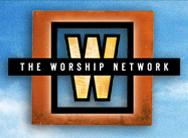
Namibia, officially the Republic of Namibia, is a country in Southern Africa. Its western border is the Atlantic Ocean; it shares land borders with Zambia and Angola to the north, Botswana to the east and South Africa to the south and east. Although it does not border Zimbabwe, less than 200 metres of the Botswanan right bank of the Zambezi River separates the two countries. Namibia gained independence from South Africa on 21 March 1990, following the Namibian War of Independence. Its capital and largest city is Windhoek. Namibia is a member state of the United Nations (UN), the Southern African Development Community (SADC), the African Union (AU) and the Commonwealth of Nations.
Telecommunications in Namibia include radio, television, fixed and mobile telephones, and the Internet.

WFSH-FM is an FM radio station licensed to Athens, Georgia, and serving Metro Atlanta. The station is owned by Salem Media Group and it airs a Christian contemporary radio format. It is branded as The Fish 104.7 and describes itself as "Safe For The Whole Family." Between Thanksgiving and the weekend after Christmas, the station plays all Christmas music, both religious and secular.
Religious broadcasting is the dissemination of television and/or radio content that intentionally has religious ideas, religious experience, or religious practice as its core focus. In some countries, religious broadcasting developed primarily within the context of public service provision, whilst in others, it has been driven more by religious organisations themselves. Across Europe and in the US and Canada, religious broadcasting began in the earliest days of radio, usually with the transmission of religious worship, preaching or "talks". Over time, formats evolved to include a broad range of styles and approaches, including radio and television drama, documentary, and chat show formats, as well as more traditional devotional content. Today, many religious organizations record sermons and lectures, and have moved into distributing content on their own web-based IP channels.

KAAY is a commercial radio station in Little Rock, Arkansas, owned by Cumulus Media. It airs a Christian radio format of instruction and preaching, with most of the schedule made up of brokered programming featuring local and national religious leaders, including Charles Stanley, Jim Daly, John F. MacArthur, and Albert Pendarvis. Overnight, automated contemporary Christian music is heard. The station's studios are located in West Little Rock, and the transmitter is located off McDonald Road in Wrightsville. KAAY is Arkansas's primary entry point station for the Emergency Alert System.
WRNO is a commercial shortwave radio station which began international broadcasting on February 18, 1982 and continued regular broadcasting through the early 1990s from Metairie, Louisiana, with a continuation of periodic broadcasts starting in 2009. These call letters are still in use by the New Orleans station WRNO-FM; both were founded and originally owned by Joseph Costello III.
CJLT-FM is a Canadian radio station broadcasting at 93.7 FM in Medicine Hat, Alberta. The station is owned by Vista Radio and broadcasts a Christian music format branded as 93.7 Praise FM.

KFIS is a commercial FM radio station licensed to Scappoose, Oregon, and serving the Portland metropolitan area. It is owned by the Salem Media Group and airs a Contemporary Christian (CCM) radio format. As with other Salem CCM stations in cities such as Los Angeles and Atlanta, KFIS uses the branding "The Fish", a symbol was often used by the early Christian church.

The Namibian Broadcasting Corporation (NBC) is the public broadcaster of Namibia. It was established in 1979, under the name South West African Broadcasting Corporation (SWABC).

The Worship Network, or Worship, was a broadcast television service that provided alternative Christian worship-themed programming 24 hours a day, seven days a week. The network was based in Nashville, Tennessee, in the United States, and is available in more than 50 countries. It was owned by The Christian Network, Inc. (CNI), a church which also owned Worship's defunct sister network, Praise TV.

CJTW-FM is a Canadian radio station, broadcasting at 93.7 FM in Kitchener, Ontario. The station, owned by Sound of Faith Broadcasting Inc., airs a Christian music and talk programming format branded as Faith FM 93.7. Various Christian artists are played, game shows, programs by various speakers/pastors. CJTW is "safe for the whole family" or "a safe spot on the dial".

CKJJ-FM is a Christian music radio station, broadcasting at 102.3 FM in Belleville, Ontario, Canada. The station began broadcasting in 2003 and is owned by United Christian Broadcasters Canada (UCB).
CJFH-FM is a Canadian radio station, broadcasting at 94.3 FM in Woodstock, Ontario. The station airs a Christian music format branded as Hope FM.

WYFI is a Religious formatted broadcast radio station licensed to Norfolk, Virginia. WYFI serves Hampton Roads in Virginia and Northeastern North Carolina. WYFI is owned and operated by Bible Broadcasting Network.
WFIA-FM is a Christian Talk radio station in the Louisville, Kentucky metropolitan area. It is owned by the Salem Media Group.

The Fundamental Broadcasting Network (FBN) is a network of Christian radio stations in the United States, based out of the Grace Baptist Church in Newport, North Carolina.
Rejoice Broadcast Network, branded as "Rejoice Radio", is a network of Christian radio stations airing a format of Christian talk and teaching and Christian music. The network is owned by Pensacola Christian College.
Mass media in Namibia includes radio, television, and online and print formats.









